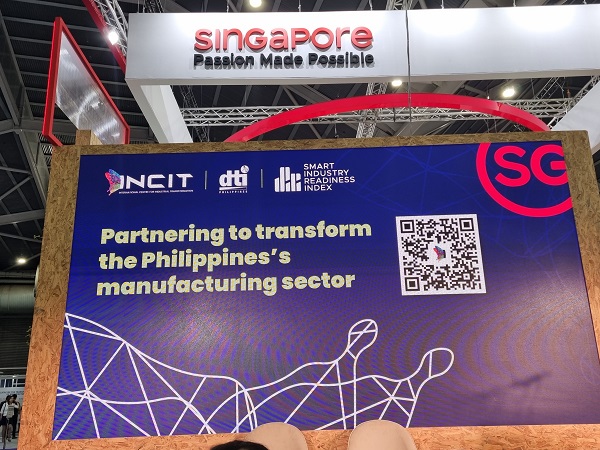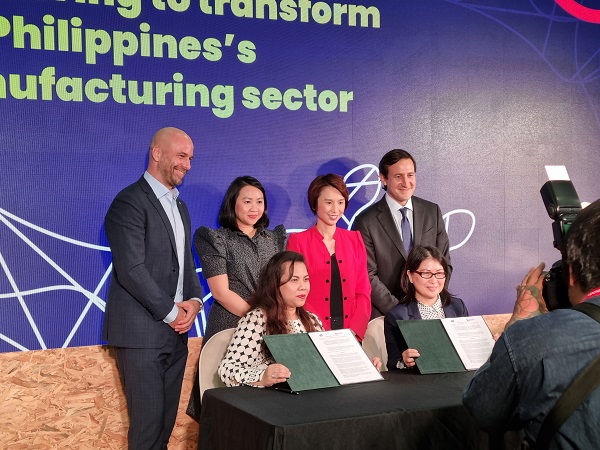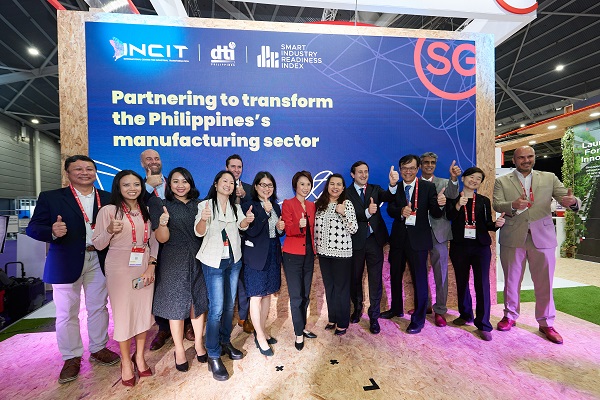
The International Centre for Industrial Transformation (INCIT) has signed an agreement to collaborate with the Philippine Department of Trade and Industry (DTI) to facilitate the adoption of the Smart Industry Readiness Index (SIRI) framework throughout the Philippines in a bid to accelerate the transformation of the manufacturing sector.
According to this new agreement, which was inked in an official ceremony held today at the Industrial Transformation ASIA-PACIFIC (ITAP) 2022 event, the partnership will contribute towards the DTI’s new science, technology, and innovation-driven industry strategy, which aims to leverage innovation to expand economic opportunities in the country and catalyse inclusive, sustainable and resilient industrialisation. The roll-out of SIRI in manufacturing facilities across the Philippines will be supported financially by the Asian Development Bank (ADB).
Raimund Klein, CEO and Founder of INCIT, believes SIRI and its associated tools, frameworks and programmes will have a tangible, positive impact on the Philippine manufacturing sector, boosting adoption of Industry 4.0 and helping to raise productivity and grow the industry, to benefit individual manufacturers, the broader industry, and the government and populace of the Philippines.

“The adoption of SIRI will enable manufacturers throughout the Philippines to unlock the full potential of the Fourth Industrial Revolution, so they can rapidly grow and develop. This will in turn boost productivity, to help improve standards of living across the nation and position Philippine manufacturing for future success,” he said.
This partnership marks the first time an ASEAN country has partnered with INCIT to adopt the SIRI framework as a national index, and represents the successful scale-up of a pilot initiated in 2021 by ADB, as part of the World Economic Forum Global SIRI Initiative. The ADB has chosen SIRI as a key tool to support socio-economic development within the manufacturing sectors of its developing member countries in Asia Pacific.
According to Undersecretary Rafaelita M. Aldaba, Undersecretary for the Competitiveness and Innovation Group, DTI, the adoption of SIRI throughout the Philippines will be critical in enabling an industrial transformation that is based on solid, reliable, and accurate data and insights.
“Through science, technology, and innovation and the use of essential digital technologies, Philippine industries would be in a better position to face competition in both domestic and export markets and pave the way for industrial transformation.
In this regard, the utilization of SIRI will be critical in supporting firms and industries that are shifting to new technologies by providing deeper awareness and understanding of digital transformation and assistance to firms in assessing their technology readiness and formulation of their firm-level Industry 4.0 roadmaps.” she said.
SIRI provides a framework to help solve every production problem, whether across silos, processes, technologies, or the organisation itself, while at the same time increasing productivity. It allows manufacturers to prioritise their key focus areas, so that resources can be adequately allocated to deliver the greatest impact.

More about the Philippine Department of Trade and Industry (DTI)
The DTI is the executive department of the Philippine government tasked to enable innovative, competitive, job-generating, and inclusive businesses. It is implementing the science, technology, and innovation-driven industrial strategy, which aims to grow innovative and globally competitive manufacturing, agriculture, and services industries, while strengthening their linkages in domestic and global value chains, to achieve an inclusive and sustainable growth that generates more opportunities for employment and entrepreneurship in the country.
More about the International Centre for Industrial Transformation (INCIT)
The DTI is the executive department of the Philippine government tasked to enable innovative, competitive, job-generating and inclusive business, as well as empower consumers. It is implementing a new science, technology, and innovation-driven industry strategy, which aims to grow innovative and globally competitive manufacturing, agriculture and services industries, while strengthening their linkages in domestic and global value chains, to achieve an inclusive and sustainable growth that generates more opportunities for employment and entrepreneurship in the country.














